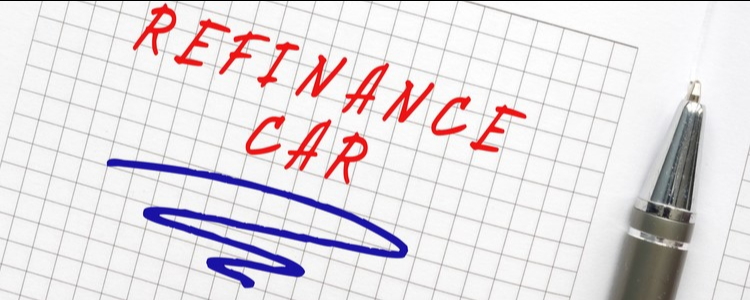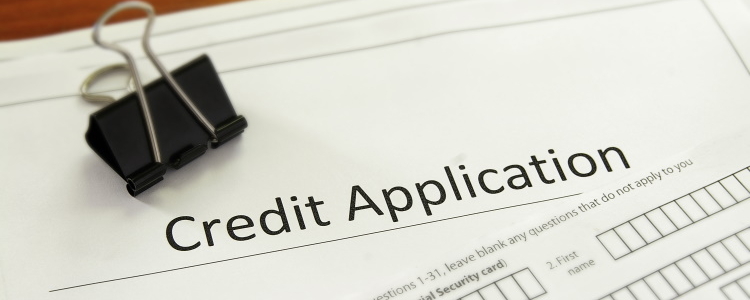If you are currently in an auto loan that you aren’t happy with, you may have heard of the term “refinancing.” This could be something to consider if your credit score has improved or interest rates have gone down since you got your current loan. Refinancing can be a good option to save money, but it’s crucial to know how it can affect other important factors, namely, your credit score. If you're worried about whether refinancing will hurt your credit score, here's what you need to know.
How does refinancing work? Many borrowers who choose to refinance do so in order to get a lower interest rate and/or monthly payment. Refinancing can do this when you apply for a new loan, typically with a new lender, by closing your old loan and marking it as “paid in full” on your credit reports. In order to qualify for refinancing, borrowers usually have to have their former loan for two years, and the new lender must first approve them by looking at their credit and debt-to-income ratio.
While refinancing can be a good option to lower your payments, applying for refinancing results in hard inquiries on your credit report. If you aren’t careful with how you go about applying, this can be what really hurts your credit score.
 What are credit inquiries? There are two different types of inquiries: soft and hard. A soft inquiry is where you or someone you approve checks your credit and, while that can lower your score slightly, the effects go away fairly quickly. The real one to worry about when it comes to refinancing is hard inquiries.
What are credit inquiries? There are two different types of inquiries: soft and hard. A soft inquiry is where you or someone you approve checks your credit and, while that can lower your score slightly, the effects go away fairly quickly. The real one to worry about when it comes to refinancing is hard inquiries.
A hard inquiry is when a lender or financial institution checks your credit report in order to see if you are qualified for a lending decision like a car loan. When you submit an application for new credit, such as refinancing, it will always lead to whoever you applied to making a hard inquiry on your credit. Hard inquiries, much like soft ones, lower your credit score by a few points each time, so it’s important to limit your number of applications for a new loan. It takes two years for the effects of a hard inquiry to disappear from your credit report, though it only truly impacts your credit score for one year.
Multiple hard inquiries can lower your credit score very quickly if you’re not careful, but shopping around to make sure you’re getting the best rates is the best course of action. In order to avoid hurting your credit score, try narrowing your options down to only a few candidates before submitting any applications and be sure to keep track of your score so you’re aware of the impact the applications have on your credit.
How does rate shopping help? The good news is that the credit bureaus recognize a practice called “rate shopping.” This happens when you submit several loan applications in a short period of time. As long as you submit all of your loan applications within a 30 to 45-day period, the credit bureaus will count every one of your applications as only one hard inquiry. This means your credit will only lower the amount that it would if you had only submitted one application. Considering hard inquiries can lower your score by 10 to 20 points each time, you’ll want to be sure that you submit all applications within that 30 to 45-day span.
Is refinancing really worth it? Though your score may take a hit while going through the process, refinancing can still be worth it. Once you have gotten a few offers from your rate shopping, you can compare them using online calculators and determine which one best suits you. To figure out which will save you the most money in the long run, you’ll need the following: your current loan amount, your monthly payment, your interest rate, and the loan term, as well as the same values that the new lenders have offered you.
For example, let’s say you have an auto loan for $15,000, a monthly payment of $365, a 16% interest rate, and a loan term of 60 months with a current balance of $8,726. If you managed to qualify for a reduced interest rate of 10% by paying on time each month and raising your credit score, then your refinanced auto loan for the remaining 36 months could save you almost $600 compared to your original loan. This would be done by lowering your total interest paid by $563, plus your monthly payment would decrease by $83.
|
| Current Loan (16%) | New Loan (10%) | Difference |
| Monthly Payment | $365 | $282 | Decreases by $83 |
| Months Remaining | 36 | 36 | None |
| Interest Remaining | $1,973 | $1,410 | Decreases by $563 |
The key to refinancing is to make sure you’re doing it properly in a timely manner, and you could end up saving money. Be sure to do the math and see if refinancing your car loan is the right move for you.
If you want to try refinancing, Auto Credit Express can connect you to a local dealer. We have a network of dealerships and we’ll work to match you to the right one. Fill out our simple and secure car loan request form online to get started.



















